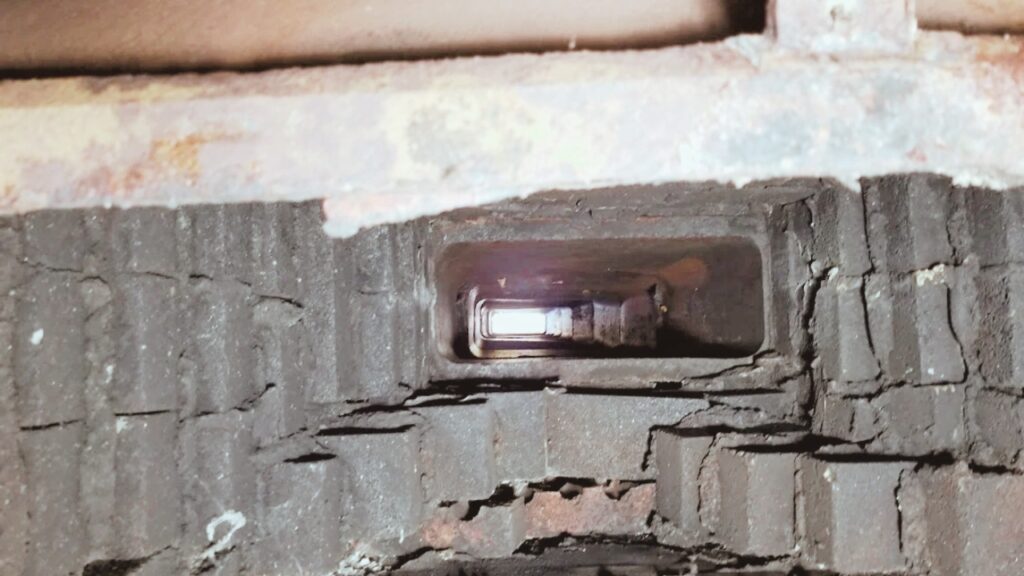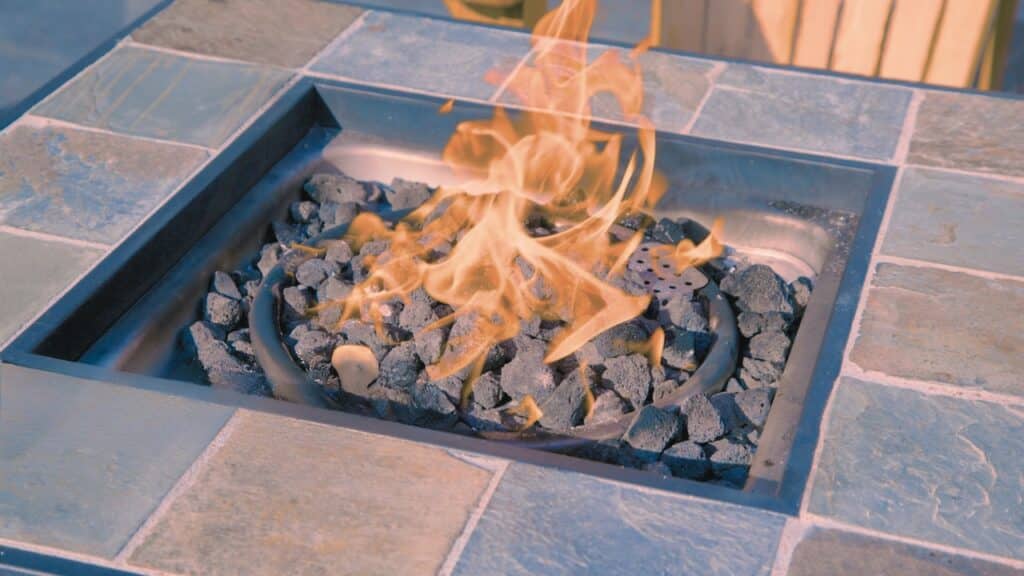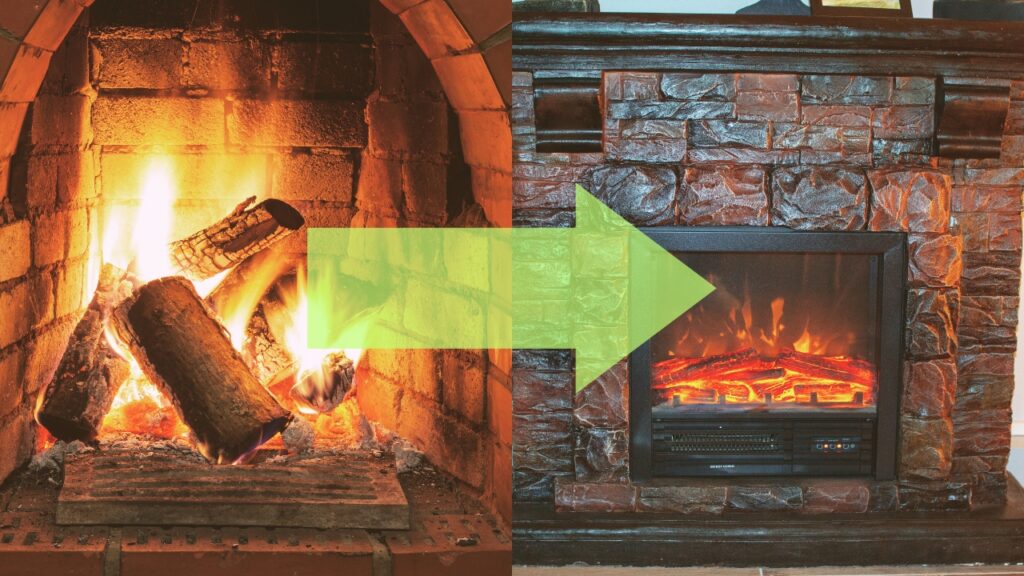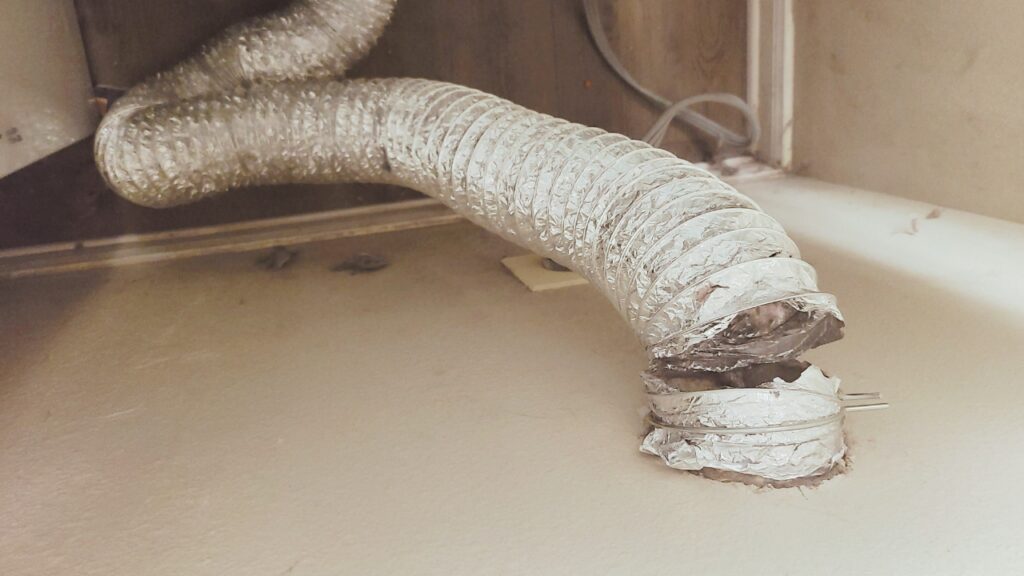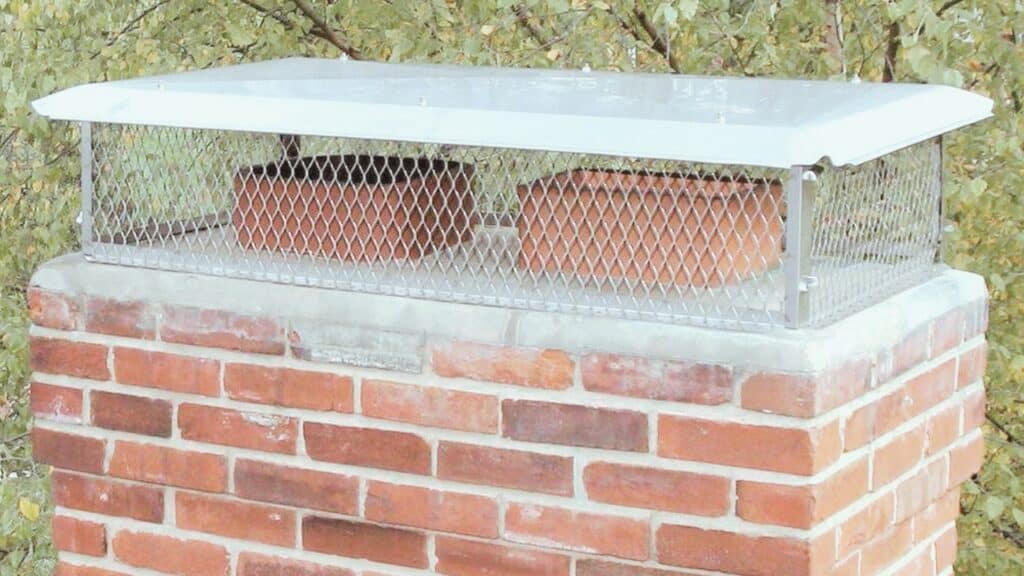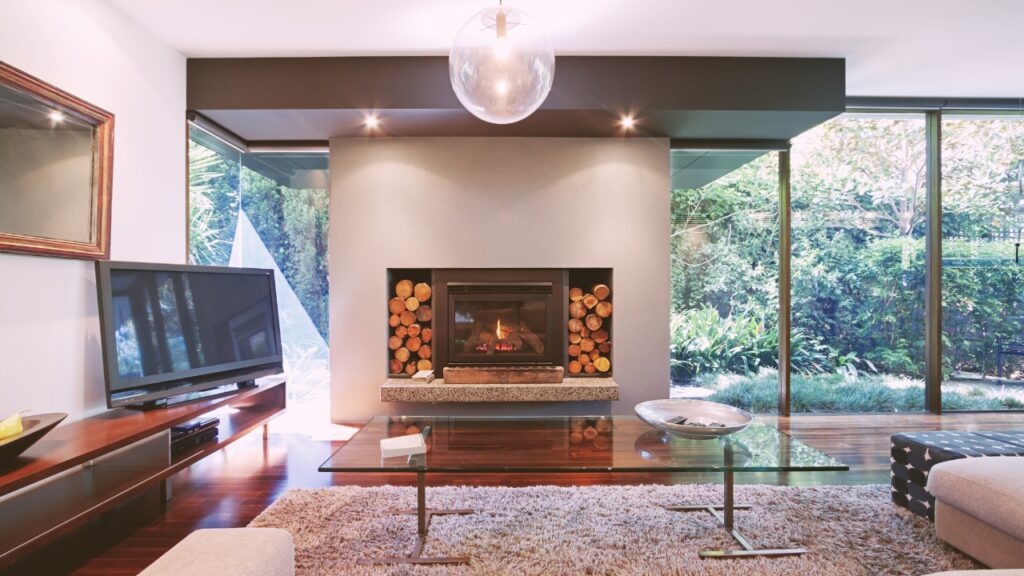Did you know that chimney fires remain one of the most serious fire threats in our homes? The National Fire Protection Association reported that about 30% of house fires are related to dirty or improperly maintained chimneys.
This concerning statistic leads us to explore the critical question: can a dirty chimney cause a fire? The answer is a resounding yes, as the buildup of creosote and other flammable substances in an unclean chimney can ignite under high temperatures, posing a significant risk.
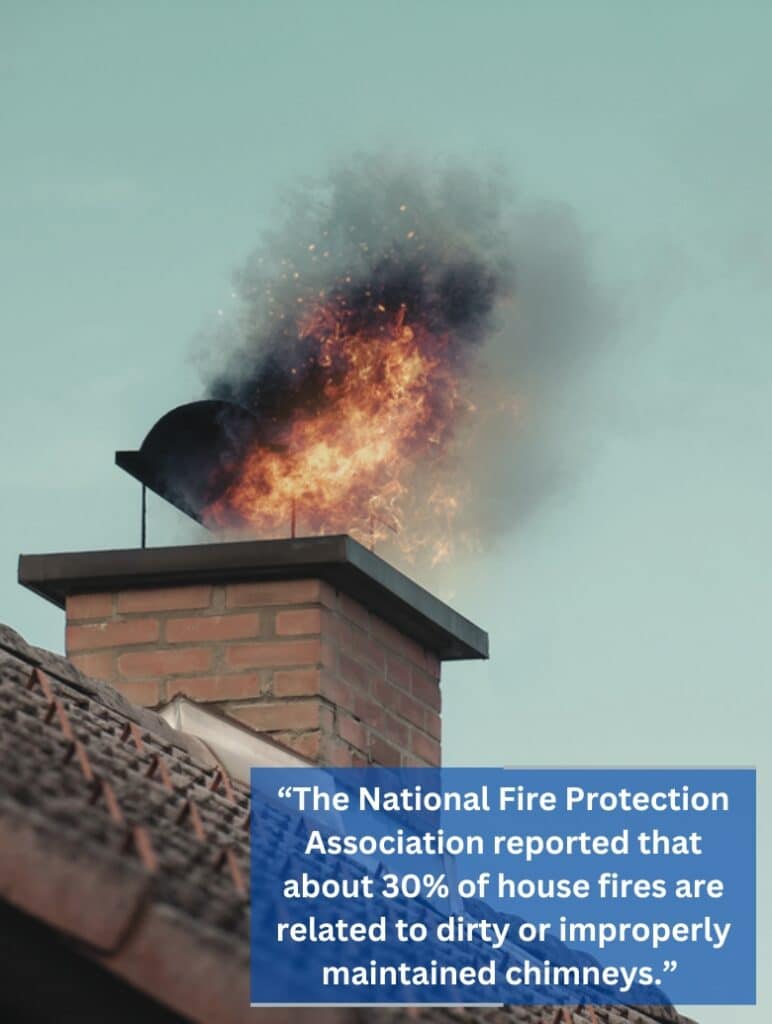
This is why homeowners should always maintain a clean chimney! But the question remains – what exactly does a dirty chimney have to do with fire dangers?
Can A Dirty Chimney Cause A Fire?
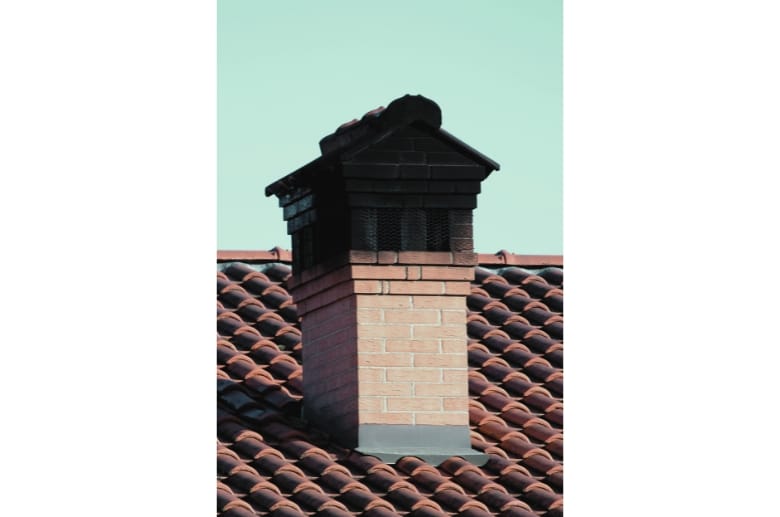
The answer is yes!
Simply put, a dirty chimney can cause fire due to the buildup of creosote and soot. As these substances collect over time in your chimney, they pose an increased risk of ignition. Even small amounts of creosote and soot can ignite from the heat of a fire in your fireplace, leading to house or chimney fires.
According to NFPA, 44,210 home structure fires were caused by heating equipment each year between 2016 and 2020. These catastrophes often start small but, if left unchecked, can quickly become much more dangerous.
Out of these fire incidents, 18% resulted in fatalities. So, the answer is yes – a dirty or improperly maintained chimney can cause a fire in your home.
Other Risks Of A Dirty Chimney
Fire isn’t the only risk associated with having a dirty chimney. Other issues that you might not think of include:
- Smoke and gases from the fireplace can seep into your home due to poor insulation in the pipes or flue, leading to an unpleasant odor and even health risks.
- Pests such as birds or squirrels could build a nest in the flue, leading to blocked pipes and ventilation, further increasing your risk of a fire hazard.
- A dirty or blocked chimney can cause backdrafting, when more smoke is going into your home than going out. This could be a sign of carbon monoxide poisoning being present in the home.
- Health problems due to creosote and soot particles can occur with exposure. For example, breathing difficulties or upper respiratory tract infections can occur with exposure.
——
Do You Need to Hire Chimney & Fireplace Expert?
Get free quotes from qualified experts near you. No commitment required!
——
How a Dirty Chimney Can Lead to a Fire
Here are a few situations where a dirty or poorly maintained chimney can lead to a fire:
Creosote Buildup
Creosote is a natural byproduct of burning wood. It’s an oily, sticky substance that accumulates on the inside walls of your chimney over time. As it builds up, it gets increasingly flammable. If not regularly cleaned with a chimney brush or other tools, this creosote can catch fire from hot sparks raging in your fireplace.
At 451 degrees Fahrenheit, creosote can ignite, leading to a fierce chimney fire. This is the most common cause of house fires, according to NFPA. If you hear loud cracking or popping noises from your chimney, this is usually a sign that there’s too much creosote built up in the flue, and it needs to be cleaned as soon as possible.
Blockages in the Chimney Flue
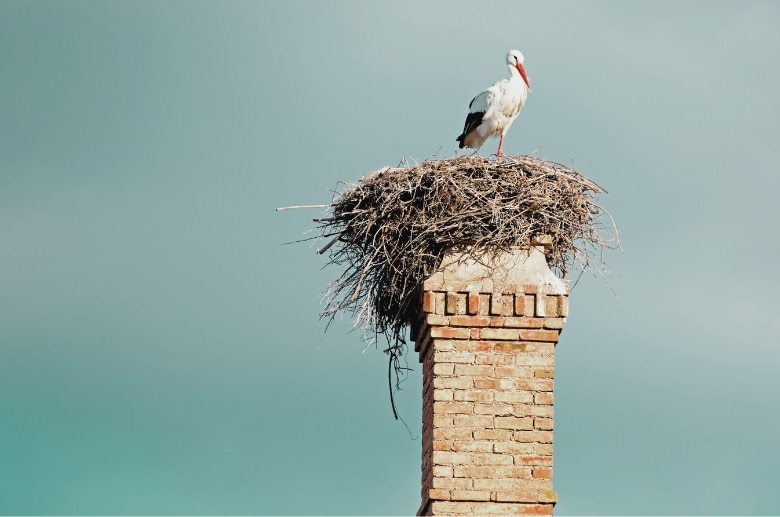
Animal nests, debris, or complete blockage of the chimney liner are all fire risks. Pests and other buildup can impede airflow going up your chimney and prevent smoke and gases from escaping.
This causes backdrafting, which can draw the smoke and carbon monoxide into your home while unleashing hazardous sparks outside the chimney flue that could quickly ignite nearby combustibles.
Burning Unseasoned Wood
Burning wood with too much moisture still trapped in it, such as unseasoned firewood, can significantly increase the risk of your chimney catching fire. The burning process isn’t complete and is actually slower compared to burning seasoned wood, which leaves behind more unburnt particles that may accumulate in the flue.
This collection of particles slowly builds up, making your chimney more and more prone to catching fire until it’s cleaned out.
Improper Maintenance Of The Chimney
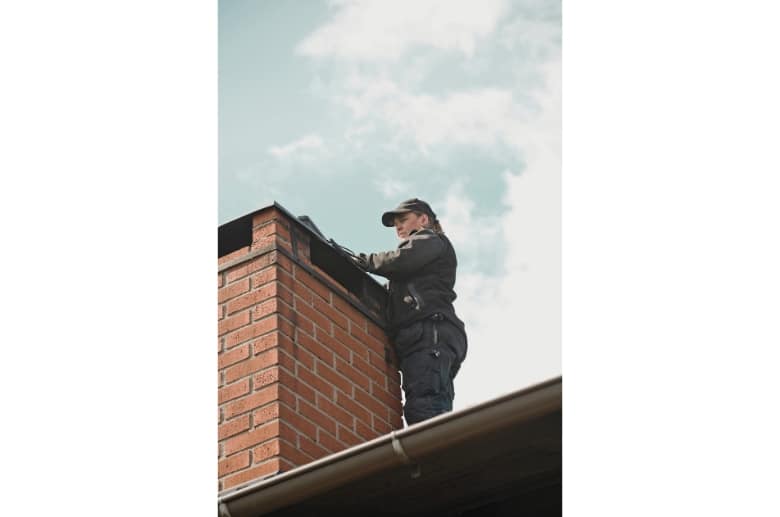
Failing to maintain your chimney properly, such as not getting it inspected or cleaned regularly, increases the risk of something going wrong. Here are some of the most important things you should monitor for your safety and the condition of your chimney:
Chimney Flue
The flue is the pipe running up the middle of your chimney that carries smoke and soot to the roof when a fire burnsis burning. It should be regularly checked for debris, as it can become blocked from buildup or animal nests.
If there’s no way for the smaller sparks and smoke to travel up the flue, this increases the risk of your chimney catching fire.
Damper
The damper is a door-like mechanism at the base of your flue that regulates air intake and release. It needs to be regularly checked to ensure it is working properly and not getting stuck open or closed, as this can affect the performance of your chimney.
Newer fireplaces don’t necessarily have dampers, but they can still be installed to increase energy efficiency and keep air from being able to escape. Professional chimney services can handle this installation for you.
Liner
The liner is an important part of your chimney that helps keep its walls insulated from the intense heat generated by fires. It should be regularly checked for any cracks or damage that could strain the flue and make it more prone to catching fire.
This is especially important for an older home with a clay or brick liner, as these are more likely to deteriorate with age. When checking your liner, ensure no gaps between the masonry and any firebricks or other combustible materials. Gaps could lead to a fire in the wall or surrounding space.
——
Do You Need to Hire Chimney & Fireplace Expert?
Get free quotes from qualified experts near you. No commitment required!
——
Homeowner’s Responsibilities and Precautions To Prevent Chimney Fires
Did you know that chimney fires have decreased by 88% since the 1980s? Major contributors to this decrease are better safety practices, quality construction techniques, and new burning technologies. Now more than ever, knowing our chimney maintenance responsibilities is important to prevent house or chimney fires.
Here are some tips on how to keep your home safe from chimney fires:
- Always have your chimney inspected and cleaned by a certified professional at least once per year, more if you burn wood frequently.
- Burn seasoned firewood only, as it has less moisture and will burn more cleanly, leading to less creosote buildup in the flue.
- Avoid burning too much wood at one time, as large flames can increase the temperature in your flue and cause excessive creosote buildup.
- Keep combustible materials, such as furniture or decorations, away from your fireplace to avoid catching fire should any sparks escape.
- Make sure you open the chimney flue before you light a fire, and close it after the last embers have burned out.
- Install one or more smoke and carbon monoxide detectors on each level of your home for added safety measures.
- Never leave a fire burning unattended—even an unsupervised fire in an outdoor pit can quickly become unsafe!
But what’s the most important thing when preventing a chimney fire? Educating yourself and staying on top of your fireplace maintenance!
Regular inspections and cleanings by a chimney sweep company with strong experience can help identify any areas of concern that need repair and alert you to potential sources of smoke or soot buildup. These contractors can also provide pertinent information on everything you need to know to keep your chimney, fireplace, and home safe.
Conclusion
The best way to protect yourself and your home from dangerous chimney fires is to remain vigilant about proper maintenance and use the tips above. Regularly inspect your chimney, solve any problem immediately, clean it when necessary, and never ignore any strange sounds or smells from your fireplace. These are all signs that something is wrong.
Taking the extra steps can save you a lot of money, worry, and possibly even your life or the lives of loved ones!
Need help finding a pro to clean or inspect your chimney? We can help you connect with a certified chimney sweep in your area who can help ensure the job is done correctly and safely. Contact us today and get started on the road the safer fireplace use.

